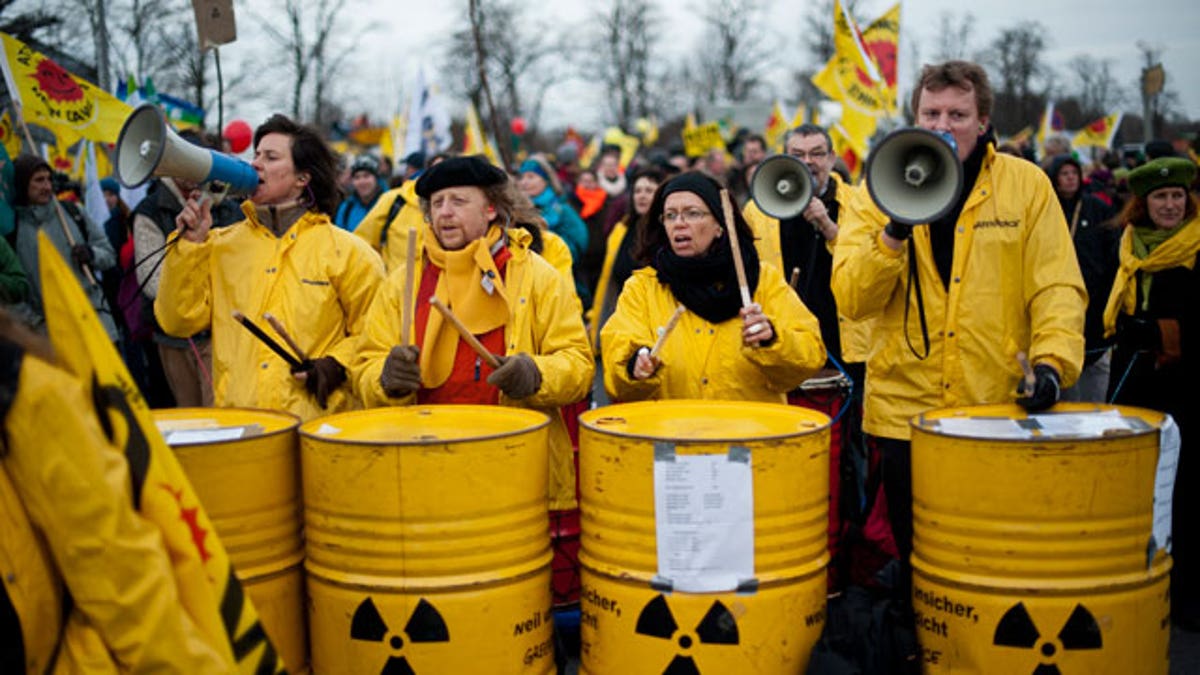
Nov. 26, 2011: Demonstrators drum on barrels with a nuclear sign, during protests against a nuclear waste transport in Dannenberg, northern Germany.
BERLIN -- Police used water cannons to disperse about 300 protesters hurling rocks and fireworks during an attempt to disrupt a shipment of nuclear waste in northern Germany on Saturday, officials said.
About 50 activists also tried to sabotage the rail tracks that will be used by a train this weekend to transport the nuclear waste to the storage facility near the northern town of Gorleben, police spokesman Stefan Kuehm-Stoltz said.
Several thousand protesters gathered in the town of Dannenberg to hold a peaceful protest rally, police said. Organizers put the figure at 23,000.
Northeast of Dannenberg, at least 1,200 people later broke through police ranks and staged a sit-in on rail tracks in an area of dense forest, police said. Organizers said around 2,000 people were blocking the tracks.
Several hundred officers were deployed to the scene to carry the protesters away, which was expected to take several hours, police spokesman Martin Ackert said.
On Friday, police clashed with some 200 protesters near Dannenberg, leaving about 20 officers injured.
The train carrying the shipment of 11 containers of nuclear waste reprocessed at France's La Hague facility entered western Germany on Friday after delays in France, where activists damaged railway tracks in an attempt to halt the cargo.
The shipment is expected to reach its destination sometime over the weekend. Some 20,000 German police officers are on hand.
Nuclear energy has been unpopular in Germany since fallout from the 1986 Chernobyl disaster in Ukraine drifted over the country. The annual shipment from France has been a traditional focal point for protesters.
This is the first shipment, however, since Chancellor Angela Merkel decided to speed up shutting down all of Germany's nuclear plants, with the last one scheduled to go offline by 2022, following safety questions raised after the disaster at the Fukushima plant in Japan.
Activists in Germany say the waste containers, and the temporary storage facility near Gorleben, are not safe.
Germany has not yet decided where such waste, which remains radioactive for thousands of years, should be stored permanently.
